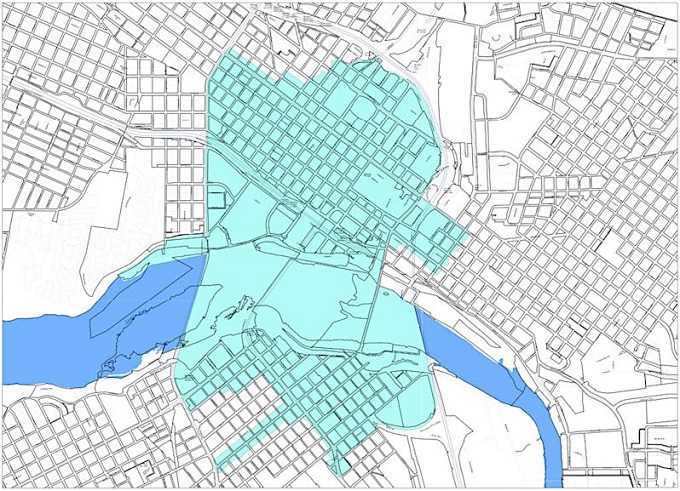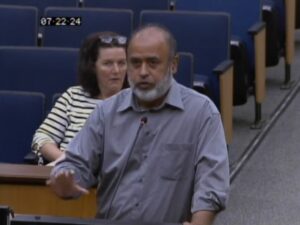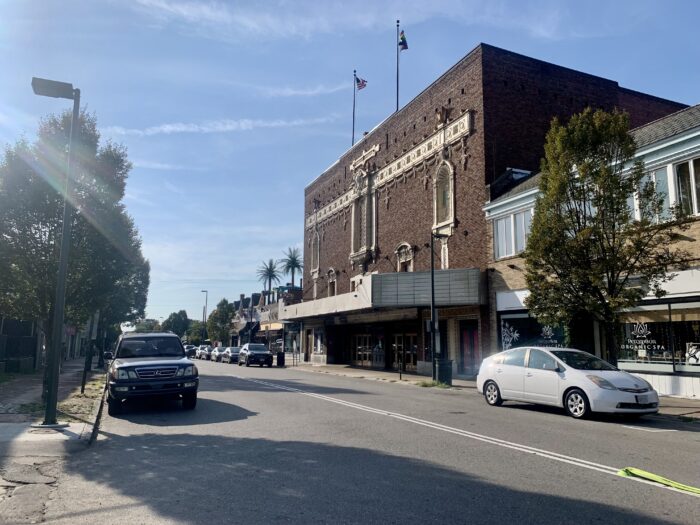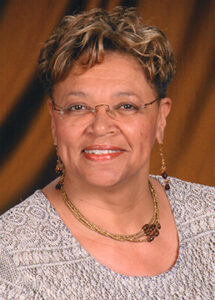As work starts on a new gateway sign for Carytown, an effort to explore a potential assessment district to fund improvements in the corridor has secured the support of Richmond City Council.
At their meeting Monday, councilmembers authorized the city’s Economic Development Authority to hire a consultant that would work with Carytown businesses and property owners to establish a business improvement district (BID) for the nine-block commercial stretch.
The district would be similar to the special assessment district that the city established with Venture Richmond for downtown and expanded to Manchester in recent years.
Businesses and property owners in those areas pay an additional fee, on top of the taxes they already pay to the city, for enhanced services such as cleaning and maintenance of sidewalks, tree wells and trash cans; marketing for businesses and the corridor; and other needs resulting from higher activity in the area.
The EDA would pay about $35,000 to hire the consultant, which would develop a process for establishing a BID that councilmembers said could be adapted and applied to other business districts in the city that want to establish one.
Councilmember Stephanie Lynch, who has assisted with the effort, said the Carytown Merchants Association has worked for years toward establishing a BID without support from a consultant, which she said is needed.
“It takes a lot of work to establish a BID, because of the number of stakeholders that you have to bring to the table and the consensus that you need,” Lynch said. “You’re asking for somebody – either the property owners or the businesses – to pay that additional tax on top of the taxes that they’re already paying, for services that they should be receiving but have to be above and beyond what is allocated today.
“What this is doing is helping to establish that process, so that other areas have a template to do that and can establish a BID quicker,” she said. “We might not end up with a BID in Carytown. We don’t know yet.”
Through the process of engaging Carytown’s 200 or so businesses as well as its property owners, the consultant would determine the BID’s assessment structure, including the amount of the assessment and how it’s assessed. Options include assessments based on gross sales, flat fees or a tiered approach, and by property size or property value.
The downtown assessment district, which spans 440 square blocks north of the river and about 82 square blocks in Manchester, is based on a property value structure in which businesses and property owners pay 5 cents per $100 of assessed value, according to Venture Richmond’s website. The downtown booster group administers the funds in collaboration with the city, which contributes additional funds through annual municipal services grants.

The downtown assessment district spans 440 square blocks north of the river and about 82 square blocks in Manchester. (Image courtesy Venture Richmond)
Where the city has provided Venture Richmond with significant funding over the years, the Carytown association has been going about its BID without support up to this point, Lynch said at Monday’s meeting.
“Part of the challenge that we’ve been experiencing is we’re asking our small business owners, the Carytown Merchants Association, who have little time and bandwidth to be able to do this big thing and take on this big effort, of building consensus across 315 individual businesses, property owners, etcetera,” Lynch said.
“Once that consultant establishes that process, that is a template that can be used, plugged and played in any other business district in the city, and that’s the hope,” she said. “This is really about getting that support from the city side so that it can be done and replicated over and over again.”
The resolution approved Monday lists other commercial corridors that the EDA would engage regarding potential BIDs, including Hull Street, East Main Street in Shockoe Bottom, East Broad Street in the City Center area, Midlothian Turnpike and Brookland Park Boulevard.
Councilmember Ellen Robertson, whose Sixth District includes the special assessment areas downtown and in Manchester, abstained from the vote after expressing doubts that a BID process developed for Carytown could be adapted to other commercial corridors in the city. She also questioned why the city would support a Carytown BID before other corridors that she said need one more.
“I agree with the need. I do not support putting Carytown before any other location in the city of Richmond,” Robertson said. “I think that significant investment has been made in Carytown, and Carytown is a pretty well-thriving commercial corridor in the city of Richmond that draws people from all over the city.”
Later, Robertson added: “There are tougher communities that we need a template (that is) adaptable to a place like Hull Street, that is not like a Carytown. I want a template that I feel is going to be adaptable, and I’m not sure that Carytown in and of itself is the location that creates an adaptable template for the city.”
Chief Administrative Officer Lincoln Saunders said the consultant’s work would focus on establishing a BID, whereas the execution of a BID and the services it provides could be tailored to a specific district’s needs.
“This is establishing the process,” Saunders said, referring to the outreach and consensus-building needed before an association could petition for a BID.
Noting the downtown assessment district’s creation in 1990, Saunders added, “It has been many years since the city established anything like this improvement district, and I believe laws have changed a lot since the original downtown district and the expansion to Manchester was established. We just want to make sure we get a template that can be easily replicated by any other business corridor.”
First District Councilmember Andreas Addison, who voted in support, expressed concerns that BIDs need to be established for areas that should already be receiving city services through taxes.
“It seems extra work to do this,” Addison said. “I know we handled the one in Manchester, and because we need to get these better services from our departments and agencies to better meet these needs, I think doing them one-off is going to take too long.
“I’d like to see how we can make this be the expectation in our commercial corridors as we develop and grow neighborhoods that we are adding these amenities as we grow. It should not have to be a burden on the neighborhood. Their success should pay for it on its own,” he said.
Lynch and Saunders maintained that the Carytown BID is intended to address additional services needed in light of the shopping district’s higher vehicular and pedestrian traffic and overall activity.
In a hearing before the vote, Kamran Shaikh, president of the Carytown Merchants Association and owner of apparel shop T-Shirt Studio, said a goal with the BID is to have all of Carytown share the burden of keeping the shopping district maintained. Of the roughly 200 businesses that make up the district, he said only about 75 support the association’s efforts as dues-paying members.

Carytown Merchants Association President Kamran Shaikh addressing council at Monday’s meeting. (Screenshot)
“The effort is to bring everybody under the net so they can share the responsibility,” Shaikh said. “Right now, it’s not a fair situation that only 70 to 80 businesses are coming again and again. I’ve been doing it for the last 10 years.
Describing Carytown as a “crown-jewel place for pedestrians” that draws visitors and tourists from around the world, Shaikh added, “If something is working good, we’ve got to put some effort to keep it good. What we are trying is to keep things on a positive note so we can do bigger and better things.”
The BID effort comes as Carytown is set to add a new gateway sign at the shopping district’s entrance along Cary Street east of Thompson Street. Footings for the two-sided, Art Deco-style sign that would be suspended via wires attached to steel poles were dug Tuesday, with concrete scheduled to be poured today.
The $100,000 sign, which is set to be completed by the end of August, is being funded using federal pandemic relief funds that the city had received to help affected businesses.
As work starts on a new gateway sign for Carytown, an effort to explore a potential assessment district to fund improvements in the corridor has secured the support of Richmond City Council.
At their meeting Monday, councilmembers authorized the city’s Economic Development Authority to hire a consultant that would work with Carytown businesses and property owners to establish a business improvement district (BID) for the nine-block commercial stretch.
The district would be similar to the special assessment district that the city established with Venture Richmond for downtown and expanded to Manchester in recent years.
Businesses and property owners in those areas pay an additional fee, on top of the taxes they already pay to the city, for enhanced services such as cleaning and maintenance of sidewalks, tree wells and trash cans; marketing for businesses and the corridor; and other needs resulting from higher activity in the area.
The EDA would pay about $35,000 to hire the consultant, which would develop a process for establishing a BID that councilmembers said could be adapted and applied to other business districts in the city that want to establish one.
Councilmember Stephanie Lynch, who has assisted with the effort, said the Carytown Merchants Association has worked for years toward establishing a BID without support from a consultant, which she said is needed.
“It takes a lot of work to establish a BID, because of the number of stakeholders that you have to bring to the table and the consensus that you need,” Lynch said. “You’re asking for somebody – either the property owners or the businesses – to pay that additional tax on top of the taxes that they’re already paying, for services that they should be receiving but have to be above and beyond what is allocated today.
“What this is doing is helping to establish that process, so that other areas have a template to do that and can establish a BID quicker,” she said. “We might not end up with a BID in Carytown. We don’t know yet.”
Through the process of engaging Carytown’s 200 or so businesses as well as its property owners, the consultant would determine the BID’s assessment structure, including the amount of the assessment and how it’s assessed. Options include assessments based on gross sales, flat fees or a tiered approach, and by property size or property value.
The downtown assessment district, which spans 440 square blocks north of the river and about 82 square blocks in Manchester, is based on a property value structure in which businesses and property owners pay 5 cents per $100 of assessed value, according to Venture Richmond’s website. The downtown booster group administers the funds in collaboration with the city, which contributes additional funds through annual municipal services grants.

The downtown assessment district spans 440 square blocks north of the river and about 82 square blocks in Manchester. (Image courtesy Venture Richmond)
Where the city has provided Venture Richmond with significant funding over the years, the Carytown association has been going about its BID without support up to this point, Lynch said at Monday’s meeting.
“Part of the challenge that we’ve been experiencing is we’re asking our small business owners, the Carytown Merchants Association, who have little time and bandwidth to be able to do this big thing and take on this big effort, of building consensus across 315 individual businesses, property owners, etcetera,” Lynch said.
“Once that consultant establishes that process, that is a template that can be used, plugged and played in any other business district in the city, and that’s the hope,” she said. “This is really about getting that support from the city side so that it can be done and replicated over and over again.”
The resolution approved Monday lists other commercial corridors that the EDA would engage regarding potential BIDs, including Hull Street, East Main Street in Shockoe Bottom, East Broad Street in the City Center area, Midlothian Turnpike and Brookland Park Boulevard.
Councilmember Ellen Robertson, whose Sixth District includes the special assessment areas downtown and in Manchester, abstained from the vote after expressing doubts that a BID process developed for Carytown could be adapted to other commercial corridors in the city. She also questioned why the city would support a Carytown BID before other corridors that she said need one more.
“I agree with the need. I do not support putting Carytown before any other location in the city of Richmond,” Robertson said. “I think that significant investment has been made in Carytown, and Carytown is a pretty well-thriving commercial corridor in the city of Richmond that draws people from all over the city.”
Later, Robertson added: “There are tougher communities that we need a template (that is) adaptable to a place like Hull Street, that is not like a Carytown. I want a template that I feel is going to be adaptable, and I’m not sure that Carytown in and of itself is the location that creates an adaptable template for the city.”
Chief Administrative Officer Lincoln Saunders said the consultant’s work would focus on establishing a BID, whereas the execution of a BID and the services it provides could be tailored to a specific district’s needs.
“This is establishing the process,” Saunders said, referring to the outreach and consensus-building needed before an association could petition for a BID.
Noting the downtown assessment district’s creation in 1990, Saunders added, “It has been many years since the city established anything like this improvement district, and I believe laws have changed a lot since the original downtown district and the expansion to Manchester was established. We just want to make sure we get a template that can be easily replicated by any other business corridor.”
First District Councilmember Andreas Addison, who voted in support, expressed concerns that BIDs need to be established for areas that should already be receiving city services through taxes.
“It seems extra work to do this,” Addison said. “I know we handled the one in Manchester, and because we need to get these better services from our departments and agencies to better meet these needs, I think doing them one-off is going to take too long.
“I’d like to see how we can make this be the expectation in our commercial corridors as we develop and grow neighborhoods that we are adding these amenities as we grow. It should not have to be a burden on the neighborhood. Their success should pay for it on its own,” he said.
Lynch and Saunders maintained that the Carytown BID is intended to address additional services needed in light of the shopping district’s higher vehicular and pedestrian traffic and overall activity.
In a hearing before the vote, Kamran Shaikh, president of the Carytown Merchants Association and owner of apparel shop T-Shirt Studio, said a goal with the BID is to have all of Carytown share the burden of keeping the shopping district maintained. Of the roughly 200 businesses that make up the district, he said only about 75 support the association’s efforts as dues-paying members.

Carytown Merchants Association President Kamran Shaikh addressing council at Monday’s meeting. (Screenshot)
“The effort is to bring everybody under the net so they can share the responsibility,” Shaikh said. “Right now, it’s not a fair situation that only 70 to 80 businesses are coming again and again. I’ve been doing it for the last 10 years.
Describing Carytown as a “crown-jewel place for pedestrians” that draws visitors and tourists from around the world, Shaikh added, “If something is working good, we’ve got to put some effort to keep it good. What we are trying is to keep things on a positive note so we can do bigger and better things.”
The BID effort comes as Carytown is set to add a new gateway sign at the shopping district’s entrance along Cary Street east of Thompson Street. Footings for the two-sided, Art Deco-style sign that would be suspended via wires attached to steel poles were dug Tuesday, with concrete scheduled to be poured today.
The $100,000 sign, which is set to be completed by the end of August, is being funded using federal pandemic relief funds that the city had received to help affected businesses.







“Carytown as a “crown-jewel place for pedestrians” that draws visitors and tourists from around the world…”
Great to start the morning off with a laugh.
Yay! More bureaucracy!
George, just for the record, Carytown is the city’s most successful retail district and second place (where?) isn’t close. And it is international in scope, even if that quote you’ve cited is pure hyperbole. There are shops and restaurants there from all corners of the world and the shoppers are certainly a diverse group ethnically. That’s a fact! This is a thriving community.
The operable word is “draws” and the object is visitors from around the world.
I can guarantee you that nobody outside of the USA is planning a trip specifically to visit Cary Street in Richmond, VA.
The U.S. and Richmond is now “ethnically” diverse, and it’s not because they were drawn to Cary St.
Visitors are visiting Cary St. when say visiting expat friends and family because it’s one of 2 things one can do in RVA.
The other is visiting Sheetz.
jesus you are negative. Richmond is a vibrant city with an almost unlimited array of things to do. I’m sorry you can’t see that from what I expect is your view from the comfy yet generic confines of the burbs. Lots of chain restaurants for you out there, lots of thriving from the ground up small businesses and restaurants for us in the city.
Yes, lots.
As to why all your examples center on filling one’s face hole.
The American provincial’s metric of civilizational benchmarks.
Yet protest as you might, it does not change the fact that Richmond is not a destination for world travelers.
I can’t imagine you’ve run into many, let alone left your house, with that kind of attitude.
Well, uh…. eateries are big with World Travelers, right? Anthony B even went to places like Cleveland and Burma, but of course there are places like France and Italy.
I am NOT saying Richmond is a big world traveler destination, just want you to be a bit more precise maybe?
I think French Provincials tend to also be kind of food centric, from what I remember…. you must have high standards for provincials.
I dropped into Carytown the other night for some take-out. The streets and sidewalks were jammed with shoppers and revealers. Its success is obvious. I don’t understand the need for $100,000 in signage to identify these highly visible nine blocks and I don’t understand the need for a BID. The Council is in such a hurry to spend money there and to charge more tax for services that are already paid for. This district is thriving. Leave it be! The Council and Admin should be looking for ways to save money,not spend more of it recklessly. The RTD uncovered that… Read more »
Go woke, go broke
his post literally disproves the generic talking slogan you appropriated off facebook.
Carytown is already woke (defined here as celebrating diversity), which makes it hip and fun to a young crowd. I agree with Mr. Milam: Let it be.
Glad you have come around. More people need to give the mayor his due.
As a third generation Carytown business owner my company was established in Carytown 78 years ago by my grandparents Larry and Deborah Sterling, where my office is to this day. I didn’t have a chance to make it to the meeting, I’m sure I’ll be at City Hall soon. As a paying member of the CMA, I hope this district if established will benefit the area and not be a unnecessary burden on the community. My questions are where is the money going? How is it allocated? Who will control it? What projects are specifically outlined in its allocation? What… Read more »
I would definitely think they should wait until there’s more details and a new mayor. Lord only knows what will get set up under this administration, probably some type of fund that gives a half sent to Stoney’s electoral committee.
Organic development vs. Bureaucrat / Political development.
Carytown – organic
Scott’s Addition – organic
6th Street Marketplace – bureaucrat / political
Casino – bureaucrat / political
Politicians just want money to spend, without any accountability when things don’t work.
The Carytown sign “being funded using federal pandemic relief funds” (that didn’t get spent); this is what taxpayer misappropriated money is spent on. If it didn’t get spent return it to the taxpayers or apply to our out-of-control national debt.
“Businesses and property owners in those areas pay an additional fee, on top of the taxes they already pay to the city, for enhanced services such as cleaning and maintenance of sidewalks, tree wells and trash cans;….” I always wondered why the business and property owners don’t sweep up trash and clean and pull weeds from the sidewalks and maintain the tree wells in front of their property themselves to make their store and business fronts more attractive in the first place. It isn’t like most of them have a hundred feet of frontage to maintain Also, the east-west aspect… Read more »
Years ago the city had all the trees cut down,for some reason I don’t know.
So supposedly the old trees that were there were oversized, past their lifespan, and messing with the sidewalk by dropping limbs, and I think some type of berries, that were dangerous and slippery.
I think you are talking about when they cut down the flowering pears.
Those are planted because they grow fast and flower, but they are WEAK and not good long term trees, and I guess they were breaking too much…
Many of the business owners do just that, Thomas. You also have the benefit of regular cleanups by the various environmental groups in town, who partner with businesses like Cap One and CoStar to do community cleanups.
Citizens, beware of Vulture Richmond.
Let me determine if I understand this. Carytown is so successful that I presume the city is receiving a great deal of tax revenue from all of the Carytown restaurants meals tax payments. The City is also getting real estate taxes, which in all probability, are enhanced due to the value of Carytown real estate. Keeping these factors in mind why does the city need to have additional taxes added? just allocate the proper portion of the collected taxes to Carytown. What exactly is needed? An extra street cleaning or two a week, and the emptying of the sidewalk trash… Read more »
Or the desk bandits will turn it into such with gradual pen strokes.
I have to use my dictionary when they quote that Lynch woman and still don’t understand.
Buzz words. “Stakeholders”.
AKA the hosts to the governmental parasites who need to tax the hosts some more so they can get more of the governmental largesse.
“The government is good at one thing. It knows how to break your legs, and then hand you a crutch and say, ‘See if it weren’t for the government, you wouldn’t be able to walk.”
-Harry Browne
Best post of yours yet! More like these.
I recently attended a Carytown Merchants’ meeting and was very surprised how few business owners attended and seemed to be actively involved. I’d guess it was probably about ten or twelve. They talked about big issues: crime/safety, the sign installation, the Watermelon Festival, the Special Use Permit process, and fundraising for local non-profits. It was pretty clear to me from observing a one-hour meeting they are very busy business owners and even communication and engagement among their membership is a challenge. I’m sure it would be the same in other areas (Does Libbie & Grove have a similar organization?). I… Read more »
I wouldn’t even let that Lynch woman drive down Cary St.